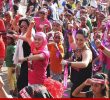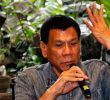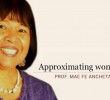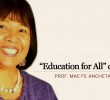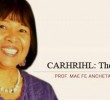The participation of children in seeking solution to their problem, both as children and as members of their community, is highly recognized among child rights activists and advocates. Its construction as a social concept may have been subjected to scrutiny but recent studies point to the value of children participation to the exercise of democracy.
The statement of Department of Social Welfare and Development’s Secretary Corazon ‘Dinky’ Soliman was off tangent, when she condemned the indigenous people’s action allowing children in the camp- taking part in the protest action on the non-issuance of permit for IP schools. The United Nations Convention of the Rights of Children (UNCRC) principle of participation is very clear on the right of young people (including young children according to evolving capacities) to participate in activities that affect their situations as persons just like any adult.
There may be divergent opinions on the application of the principle but the most challenging part of the participation practice among children is their experience in sharing decisions with adults especially in conscientized indigenous communities of Mindanao.
My own observations indicate that children of indigenous peoples demonstrate their capacities to decision-making alongside adults in community organization and development efforts.
For decades, where delivery of social services is erratic if not nil, indigenous children learn to grow and develop themselves with their parents and tribal leaders forming into self-propelling organizations. These efforts reach a level of taking children to the road of citizenship. A theory on social learning shows us how to appreciate participation in the context of the lumads of Mindanao.
The principles and concepts of social learning theory developed by Lev Semyonovich Vygotsky, a Russian psychologist in particular enlightens the social work practice if it has to really become relevant and be attuned to the new global definition of social work adopted in Melbourne in 2014 where it emphasizes human rights, social justice and people’s liberation as paramount in the entire helping process. Vygostky was known for his re-conceptualization of the cognitive psychological approach in the representation of knowledge. Although other scholars theorized that the social world plays a primary role in the development in children’s cognitive growth, Vygotsky was more concerned with the interrelationships between the macro- and micro-social influences.
Vygotsky emphasized the social and cultural aspects of learning and believed it to be paramount in everyday learning. Both the social and individual frames cannot be understood independently or in isolation. What relates or connects the individual and the social world of which the individual is a part, are the meanings, tools, and goals of the socio-cultural context. Understanding the tools and goals is jointly constructed by the developing child and the culture of that particular child, yet always with the assistance of those adults more capable and competent in the use of those tools and in culturally appropriate goals.
With flourishing lumad schools in Southern Mindanao, specifically, the joint efforts of “lowland educators for development” and the IP leaders make waves but only to be halted by labeling such educational mechanism- that it is a school for child soldiers.
This labeling reinforces the violation of child’s right to development as schools faced closure when permits to operate were withheld until strong protest against its non-issuance at the time of opening of classes. While requirements to open these schools have been complied with, requisites for annual permit issuance have to be satisfactorily settled on a deadline, allowances for delays and corresponding friendly notifications would aid them morally, to say the least.
By the vignettes of stories shared in a recent forum with lumads on child rights, elders pointed out that lumad children at age 10 to 15 are already engaged in family and community decisions and I surmised long before lowland settlers dominate their culture. For semi-intact communities such as those co-owners of the schools, their own best showcase of development is the school itself- the project of their own learning community- that they have achieved out of their quest for a liberating education, and out of neglect and marginalization by the state. Sense of ownership is therefore strong, including the children who joined their parents and entire affected communities if taken in socio-cultural and political contexts.
Ownership of community actions and citizenship are twin ideals in the pursuit for a genuine participation in a planned meaningful change, not only for the lumads but for the entire society. Let their schools multiply so they could decide on their future with flying colors- for their own protection and preservation of cultural heritage!

